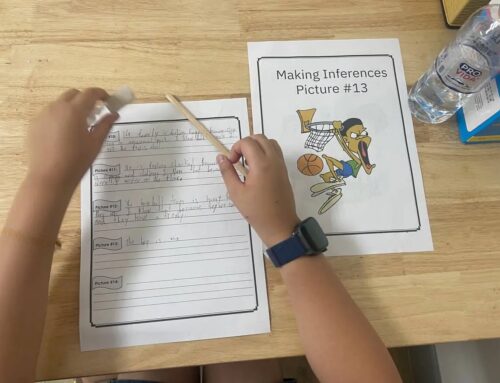[ad_1]
Every child deserves the chance to be heard. But for some, finding their voice takes more time and support. Speech delay, a common developmental issue in children, can impact learning, emotional well-being, and social interaction. The earlier it’s addressed, the better the outcome. In Phnom Penh, access to professional speech therapy services is growing, providing families with new hope and proven results.
OrbRom Center leads this movement, offering personalized therapy to children with communication challenges. In this article, we explore the causes of speech delay, how to recognize it, the role of speech therapy, and what sets OrbRom apart as a top provider in Cambodia.
Understanding Speech Delay
Speech delay refers to a child not developing speech abilities at the typical age. This may include:
-
Delayed first words
-
Difficulty forming sentences
-
Limited vocabulary
-
Problems producing clear sounds
-
Lack of social use of language (e.g., greetings or questions)
It’s important to distinguish speech delay from language delay:
Children can experience either or both—and a certified speech-language pathologist (SLP) can evaluate the difference.
Common Causes of Speech Delay
Speech development is influenced by multiple factors. Here are some common causes:
1. Hearing Loss
Undiagnosed hearing problems, even mild or intermittent, can prevent children from hearing and reproducing sounds correctly.
2. Autism Spectrum Disorder (ASD)
Many children with ASD experience challenges in speech, language, and social communication.
3. Oral-Motor Disorders
Difficulties in muscle strength or coordination can make it physically hard for children to form sounds.
4. Cognitive or Developmental Delays
Speech delay may occur alongside general developmental delays or intellectual disabilities.
5. Environmental Factors
Limited language exposure, lack of interaction, or high screen time can affect how children acquire speech.
A comprehensive assessment at OrbRom Center can help identify the root cause and guide the therapy process.
When to Seek Help
While children develop at different rates, there are milestones you can use as guidelines:
-
12 months: Not babbling or gesturing
-
18 months: Less than 10 words
-
2 years: Not combining two words or using simple sentences
-
3 years: Speech is unclear to unfamiliar listeners
-
4+ years: Struggles with storytelling, grammar, or social interaction
If any of these apply to your child, a speech evaluation is recommended.
How Speech Therapy Works
Speech therapy isn’t about memorizing words—it’s about building a foundation for communication. At OrbRom Center, speech therapy is individualized, evidence-based, and child-centered.
Key Components of Therapy:
1. Assessment and Goal Setting
A therapist evaluates the child’s strengths and challenges, then creates personalized goals for sound production, vocabulary, and language structure.
2. Fun and Functional Activities
Therapy is play-based, using games, toys, books, and visuals to teach speech concepts naturally and enjoyably.
3. Modeling and Repetition
The therapist models correct speech sounds, encourages repetition, and praises progress—building confidence with every step.
4. Parental Involvement
OrbRom emphasizes the parent’s role. Therapists offer guidance on how to support speech at home using daily routines.
5. Monitoring Progress
Each session is tracked and adapted to ensure progress toward developmental goals.
What Makes OrbRom Center Unique?
Families in Phnom Penh choose OrbRom Center for speech therapy because of:
-
Qualified Speech-Language Pathologists
Experienced therapists trained to treat a wide range of speech and language issues. -
Multilingual Support
Sessions can be conducted in English or Khmer, supporting children’s primary language while respecting cultural context. -
Child-Friendly Environment
Bright, sensory-aware therapy rooms that make children feel safe, calm, and motivated. -
Holistic Services
For children with multiple developmental needs, OrbRom also offers occupational therapy and special needs interventions. -
Family Engagement
Therapists collaborate closely with parents and caregivers, ensuring the therapy continues beyond the session.
Benefits of Early Speech Therapy
Starting therapy early leads to better long-term outcomes, including:
-
Improved articulation: Clearer speech that others can understand
-
Expanded vocabulary: Stronger communication and expression
-
Greater confidence: Reduced frustration and behavioral issues
-
Academic readiness: Preparedness for school and social interaction
-
Social success: Better relationships with peers and adults
Children who receive early support are more likely to meet milestones and succeed in the classroom and beyond.
Practical Ways Parents Can Support Speech Development
You are your child’s most important teacher. Here’s how to help at home:
1. Talk All the Time
Describe everything you do together. Example: “We are washing your hands. The water is warm!”
2. Encourage Choices
Instead of giving everything at once, ask: “Do you want the red cup or blue cup?” This promotes expressive speech.
3. Read Daily
Reading builds vocabulary and comprehension. Pause to ask questions and point to pictures.
4. Use Songs and Rhymes
Repetitive songs like “Old MacDonald” and “Wheels on the Bus” boost memory and word learning.
5. Limit Screen Time
Passive screen use reduces opportunities for real interaction—focus on talking, playing, and reading instead.
Success Stories in Phnom Penh
Thousands of children in Phnom Penh have benefitted from speech therapy. One parent shared:
“My daughter was almost 3 and still not using real words. It was heartbreaking. After just a few months at OrbRom Center, she started saying ‘mama,’ ‘more,’ and even short sentences. We feel so relieved—and so proud of her progress.”
Real stories like this highlight how much of a difference therapy can make.
Taking the First Step
If your child is showing signs of speech delay, the earlier you act, the better. Here’s how to get started:
-
Book an assessment at OrbRom Center
A speech-language pathologist will evaluate your child’s current level and create a therapy plan. -
Commit to consistency
Regular weekly sessions ensure steady progress. -
Participate at home
Use every interaction as a teaching opportunity. -
Celebrate small wins
Each word is a step toward confident communication.
Conclusion
Speech delay can be a source of stress for both children and parents—but it is also highly treatable. With the right guidance, children can build the skills they need to express themselves clearly, confidently, and joyfully.
If you’re in Phnom Penh and seeking help, OrbRom Center offers professional, compassionate, and effective speech therapy tailored to your child’s needs. Help your child find their voice—and thrive in every area of life.
[ad_2]
Source link






